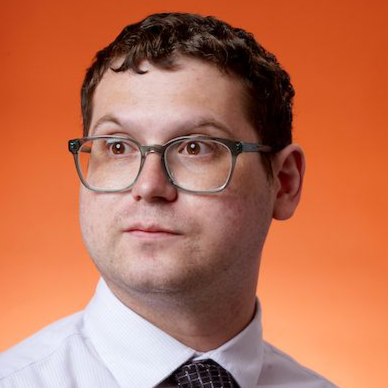Every year, a coalition of organizations that work to free the innocent and prevent wrongful convictions holds an event that brings together attorneys, exonerees and their family members.
Maryland Assistant Public Defender Erica Suter attended the Innocence Network Conference this year in Seattle, and she recalled how organizers introduced everyone in attendance who had been wrongfully convicted — and then displayed how many years they had spent imprisoned.
The total? More than 5,500 years in prison.
“Those are just the folks who could make it to the conference,” Suter said. “And that number is always so stunning to me — and just really underscores the importance of the work.”
In a move that expands resources in the state dedicated to addressing wrongful convictions, the Maryland Office of the Public Defender, in partnership with the University of Maryland Francis King Carey School of Law, has launched a second Innocence Project Clinic in the state.
Suter is starting on Tuesday as director of the Innocence Project Clinic at Maryland Carey Law.
Meanwhile, Rachel Bennett, who most recently worked as a senior attorney at the Amica Center for Immigrant Rights and previously served as an assistant public defender in Maryland, is taking over for her as director of the Innocence Project Clinic at the University of Baltimore School of Law, which started in 2008.
Maryland Public Defender Natasha Dartigue said it’s important to address past wrongs.
“You’re increasing the number of individuals we can help, as well as increasing the experience for students,” Dartigue said. “It’s also our hope we get more students interested in public defense in particular, but public interest generally.
“It’s a partnership, I would say, that multiplies the impact of our collective resources,” she later added.
Law students take part in the clinic for one year and work with clients in teams. They review documents, interview witnesses and draft court documents, all under the supervision of an experienced attorney.
That’s along with attending a twice-weekly seminar during which they learn different skills and hear from guest speakers.
A kickoff event that’s open to the public is scheduled for Sept. 17 and will feature a screening of the film “Sixteen Years.”
The documentary is about the case of Jeffrey Deskovic, who falsely confessed when he was 16 to the rape and murder of Angela Correa, his 15-year-old classmate at Peekskill High School in New York. He was exonerated in 2006 after serving 16 years in prison.
Since 1989, there have been 3,698 exonerations in the United States, according to the National Registry of Exonerations.
Douglass Haynie, of Baltimore, is one of those exonerees.
In 1993, Haynie, now 62, was wrongfully convicted in Worcester County Circuit Court of felony murder and related offenses and sentenced to life in prison without the possibility of parole plus 20 years.
Though students did not work on his case, Haynie said a team helped him navigate the criminal justice system and change his way of thinking.
For a long time, Haynie said, he had visions of dying in prison. He was released on May 29 after serving 32 years.
Suter, he said, goes to the ends of the earth to make sure that her clients receive justice.
“Sometimes,” Haynie said, “I have to pinch myself to make sure I’m not dreaming.”
From 2022 to 2023, Erin Carrington Smith took part in the Innocence Project Clinic at Ubalt Law, where her team worked with a new client, reviewing the file, studying the procedural history of the case and interviewing him about his background.
At first, Carrington Smith said, she thought about pursuing immigration law. But taking part in the clinic and completing an externship at the Maryland Office of the Public Defender’s Appellate Division solidified where she wanted to go in her career.
She’s starting later this summer as an assistant public defender in the Maryland Office of the Public Defender’s Post Conviction Defenders Division.
“The resources that are needed for this are so vast. And the more, the better, working on it,” Carrington Smith said. “I think it’s among the most important work that attorneys can be doing, making sure that people are not in prison wrongly.”





Comments
Welcome to The Banner's subscriber-only commenting community. Please review our community guidelines.